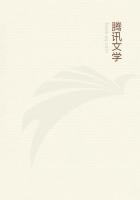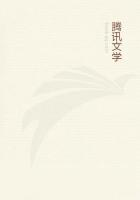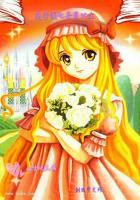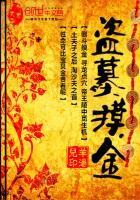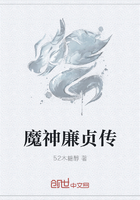"There's nothing to tell," she said, wondering. "He was one of the first- class passengers. I saw he was very ill when he came on board...But he seemed to be so much better until yesterday. He had a severe attack in the afternoon--excitement--nervousness, I think, about arriving. And after that he never recovered."
"But why didn't the stewardess--"
"Oh, my dear--the stewardess!" said Janey. "What would he have felt? And besides...he might have wanted to leave a message...to--"
"Didn't he?" muttered Hammond. "Didn't he say anything?"
"No, darling, not a word!" She shook her head softly. "All the time I was with him he was too weak...he was too weak even to move a finger..."
Janey was silent. But her words, so light, so soft, so chill, seemed to hover in the air, to rain into his breast like snow.
The fire had gone red. Now it fell in with a sharp sound and the room was colder. Cold crept up his arms. The room was huge, immense, glittering.
It filled his whole world. There was the great blind bed, with his coat flung across it like some headless man saying his prayers. There was the luggage, ready to be carried away again, anywhere, tossed into trains, carted on to boats.
"He was too weak. He was too weak to move a finger." And yet he died in Janey's arms. She--who'd never--never once in all these years--never on one single solitary occasion--
No; he mustn't think of it. Madness lay in thinking of it. No, he wouldn't face it. He couldn't stand it. It was too much to bear!
And now Janey touched his tie with her fingers. She pinched the edges of the tie together.
"You're not--sorry I told you, John darling? It hasn't made you sad? It hasn't spoilt our evening--our being alone together?"
But at that he had to hide his face. He put his face into her bosom and his arms enfolded her.
Spoilt their evening! Spoilt their being alone together! They would never be alone together again.
13. BANK HOLIDAY.
A stout man with a pink face wears dingy white flannel trousers, a blue coat with a pink handkerchief showing, and a straw hat much too small for him, perched at the back of his head. He plays the guitar. A little chap in white canvas shoes, his face hidden under a felt hat like a broken wing, breathes into a flute; and a tall thin fellow, with bursting over-ripe button boots, draws ribbons--long, twisted, streaming ribbons--of tune out of a fiddle. They stand, unsmiling, but not serious, in the broad sunlight opposite the fruit-shop; the pink spider of a hand beats the guitar, the little squat hand, with a brass-and-turquoise ring, forces the reluctant flute, and the fiddler's arm tries to saw the fiddle in two.
A crowd collects, eating oranges and bananas, tearing off the skins, dividing, sharing. One young girl has even a basket of strawberries, but she does not eat them. "Aren't they dear!" She stares at the tiny pointed fruits as if she were afraid of them. The Australian soldier laughs.
"Here, go on, there's not more than a mouthful." But he doesn't want her to eat them, either. He likes to watch her little frightened face, and her puzzled eyes lifted to his: "Aren't they a price!" He pushes out his chest and grins. Old fat women in velvet bodices--old dusty pin-cushions-- lean old hags like worn umbrellas with a quivering bonnet on top; young women, in muslins, with hats that might have grown on hedges, and high pointed shoes; men in khaki, sailors, shabby clerks, young Jews in fine cloth suits with padded shoulders and wide trousers, "hospital boys" in blue--the sun discovers them--the loud, bold music holds them together in one big knot for a moment. The young ones are larking, pushing each other on and off the pavement, dodging, nudging; the old ones are talking: "So I said to 'im, if you wants the doctor to yourself, fetch 'im, says I."
"An' by the time they was cooked there wasn't so much as you could put in the palm of me 'and!"
The only ones who are quiet are the ragged children. They stand, as close up to the musicians as they can get, their hands behind their backs, their eyes big. Occasionally a leg hops, an arm wags. A tiny staggerer, overcome, turns round twice, sits down solemn, and then gets up again.
"Ain't it lovely?" whispers a small girl behind her hand.
And the music breaks into bright pieces, and joins together again, and again breaks, and is dissolved, and the crowd scatters, moving slowly up the hill.
At the corner of the road the stalls begin.
"Ticklers! Tuppence a tickler! 'Ool 'ave a tickler? Tickle 'em up, boys." Little soft brooms on wire handles. They are eagerly bought by the soldiers.
"Buy a golliwog! Tuppence a golliwog!"
"Buy a jumping donkey! All alive-oh!"
"Su-perior chewing gum. Buy something to do, boys."
"Buy a rose. Give 'er a rose, boy. Roses, lady?"
"Fevvers! Fevvers!" They are hard to resist. Lovely, streaming feathers, emerald green, scarlet, bright blue, canary yellow. Even the babies wear feathers threaded through their bonnets.
And an old woman in a three-cornered paper hat cries as if it were her final parting advice, the only way of saving yourself or of bringing him to his senses: "Buy a three-cornered 'at, my dear, an' put it on!"
It is a flying day, half sun, half wind. When the sun goes in a shadow flies over; when it comes out again it is fiery. The men and women feel it burning their backs, their breasts and their arms; they feel their bodies expanding, coming alive...so that they make large embracing gestures, lift up their arms, for nothing, swoop down on a girl, blurt into laughter.
Lemonade! A whole tank of it stands on a table covered with a cloth; and lemons like blunted fishes blob in the yellow water. It looks solid, like a jelly, in the thick glasses. Why can't they drink it without spilling it? Everybody spills it, and before the glass is handed back the last drops are thrown in a ring.

